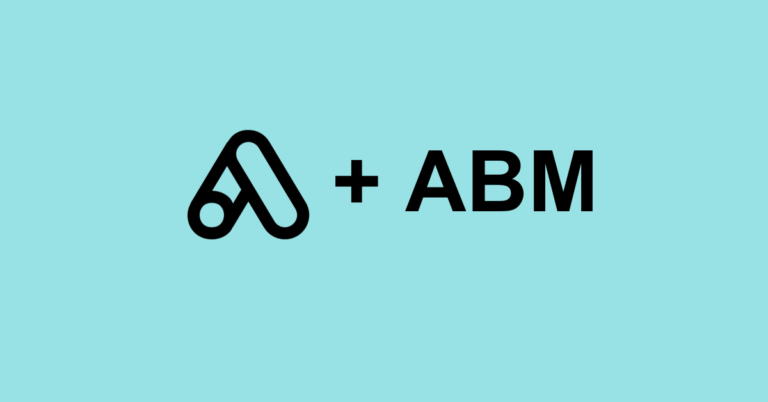The foundation of any successful Google Search campaign? Keyword research. Imagine you’re hosting a party and sending out invites. Your keywords are those invitations, determining who attends your party (or in this case, your website). The more accurately I choose my guests (keywords), the better the turnout (clicks and conversions). This is where the true power of keyword research comes into play.
In this blog, I’ll guide you through strategies that can help you find, fine-tune, and categorize your keywords. By the end, you’ll have all the tools you need to launch Google Search Ads campaigns that are precise and yield great results.
1. Get Started With Keyword Brainstorming
Starting with keyword research? Your own website or the landing pages you’re linking to in your ads is the best starting point. Just take a tour of each page, noting down keywords that stand out.
Here’s how I like to categorize these keywords:
1. Brand Terms: Keywords that have your brand name or any trademarks you own.
2. Generic Terms: Simple terms that describe what you offer. Think of “Marketing Automation Software”.
3. Related Terms: These might not exactly describe your product, but it’s what your target audience might type into Google. Maybe something like “Tools for marketing campaigns”.
4. Competitor Terms: Yup, this includes the names of your competitors. But a quick heads up: bidding on a competitor’s brand can be pricey. Only dive in if you believe there’s a good payoff.
Speaking of keywords, brainstorming can be a bit tricky, so here’s my approach:
– Step into Your Customer’s Shoes: What would you type into Google if you were them?
– Go Broad, Then Specific: Start with something general like “Marketing Automation Software”. Once you have that, try to get more detailed like “Marketing Automation Software for B2B StartUps”.
– Think of Alternatives: Google’s smart, and it links similar terms. So, if your keyword is “Marketing Automation Software”, why not also consider:
– Marketing Automation Tool
– Marketing Automation Platform
– Pipeline Marketing Automation
– Email Marketing Automation
– The Power of Long Tail Keywords: They might not be searched as much, but when someone types in “Marketing Automation Platform for B2B SaaS”, they pretty much know what they want. And here’s the bonus: these specific keywords aren’t as competitive, so they’re often cheaper to bid on.
2. Polishing Up Your Keyword List with Tools
So, you’ve got a list from brainstorming? Awesome! Now, let’s refine it. And the best way to do that? A keyword research tool. These tools show you the exact phrases people are typing into search engines. Cool, right?
Out of all the tools out there, I have a soft spot for Google Ads Keyword Planner. Trust me, it’s like the Swiss Army knife for keyword research.
Here’s a pro tip: Aim for keywords with a lot of searches but not much competition. Why? They’re golden! They bring in a lot of visitors without burning a hole in your pocket.
On the flip side, avoid keywords with low search volume and high costs. They’re like those expensive, trendy shoes that you never wear – they just eat up your budget.
And the best part about Google Ads Keyword Planner? Not only can it help you filter these out, but you might even stumble upon some hidden gems you hadn’t thought of.
3. Let’s Get Those Keywords Organized
So, you’ve got a sparkly list of researched keywords. What’s next? Sorting them into neat little groups. Think of it like organizing your favorite songs into playlists.
Let’s paint a picture. Imagine you’re a SaaS brand all about Marketing Automation Software. You want to run a campaign around the keyword “Marketing Automation”. After your research, instead of jumbling everything together, you’d sort them by themes, something like:
Ad Group 1:
– Marketing Automation Software
– Marketing Automation Tool
– Marketing Automation Platform
Ad Group 2:
– Marketing Automation for B2B
– Marketing Automation for SaaS
– B2B Marketing Automation
Ad Group 3:
– CRM Marketing Automation
– CRM Email Automation
– CRM and Marketing Automation
Here’s a little nugget of wisdom: Keep your ad groups small and tight-knit. Why? Because a well-structured campaign means better ad rankings, more conversions, and getting more bang for your buck on those clicks.
4. The Importance of Negative Keywords
Think of negative keywords as bouncers for your ads. They make sure that only the right kind of people get in. In other words, these are terms you definitely don’t want to trigger your ads.
For instance, imagine our SaaS brand that caters to B2B folks. If someone searches for “Marketing automation for free”, it’s a mismatch. Our brand doesn’t offer a freebie. So, if our ad shows up, it’s not only irrelevant but also a waste of ad spend.
Here’s how you can handpick these bouncers for your ad campaigns:
– Peek at Your Google Search Term Report: The best way to scout for negative keywords? The Google Search Term Report. It shows you the exact search terms that made your ad pop up. Spotted any odd ones? Into the negative keyword list they go!
– Understand Your Negative Keyword Match Types: Generally, broad match negative keywords like “free” or “discount” (especially if you’re not offering them) are a good idea. For more specific unwanted searches, use phrase or exact matches.
– Get a Head Start: Yes, the Google Search Term Report is great, but it only kicks in after your campaign starts. Why not start with a basic list of negatives even before your campaign launches? It’s like laying down some ground rules.
– Choose Wisely: It’s tempting to throw a lot into the negative list, but be careful. An overzealous negative keyword might actually keep your ad from the right audience. Double-check before you commit.
Wrapping It Up
Mastering keyword research is like setting a strong foundation for a house. To build a rock-solid PPC campaign, you need the right keywords, organized neatly in ad groups, and a sharp list of negatives to keep unwanted guests out.
Hope this chat felt like a cozy coffee conversation on keywords. Need more help or fancy a review of your current keyword set? Just give me a shout and let’s chat one-on-one. Always here to lend a hand!




